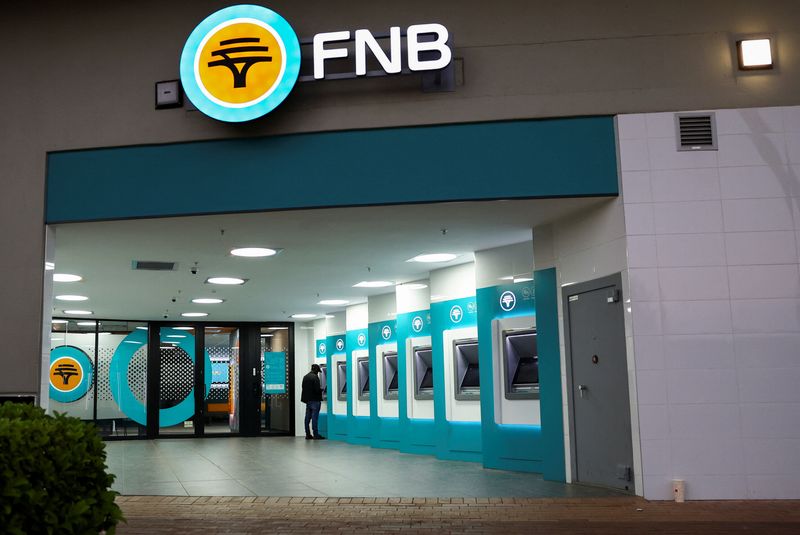By Nqobile Dludla
JOHANNESBURG (Reuters) - South African banks report their half-year earnings from Tuesday, with the focus on whether credit impairments have peaked and on the interest rate outlook, with rates expected to fall in September for the first time since July 2020.
Monetary policy has remained tight in Africa's most industrialised economy with the Central Bank holding rates at 8.25% since May 2023 after a hiking cycle from late 2021.
Economists polled by Reuters predict a 25-basis-point cut in September followed by another in November.
However, the lag between the first rate cut and improved performance, such as sustained loan growth, will likely mean a limited impact on the banks' 2024 earnings, Charles Russell, head of financial research at SBG Securities said in a note.
It will be "more material in 2025 and beyond, especially when combined with likely incremental politically-driven reform."
Keamogetse Konopi, equity research analyst at Citi said we would need to see a slowdown in inflation and more than 75 basis points of rate cuts for banks to feel the impact and for consumer pressures to ease.
This "would lead to lower defaults and better affordability for households but this is likely to only result in a gradual pick up in banks' appetite for extending credit to households," Konopi added.
RETAIL GROWTH
Radebe Sipamla, senior investment analyst at Mergence Investment Managers said credit growth will likely come from corporate lending with retail loan growth likely to remain tepid.
Most banks are expecting growth in net interest income, although some, like Nedbank are expecting to report slower growth of below mid-single digits.
Inflationary pressures, high interest rates and regular power blackouts are taking a toll on the banks' most sensitive retail and small business customers, leading to defaults.
Some like Standard Bank are grappling with sovereign defaults.
To weather the storm, banks have boosted their provisions for credit losses and have been conservative in lending out money.
Banks' credit losses have increased after a series of interest rate hikes, with the majority of banks' credit loss ratios - a measure of bad loans as a percentage of total loans - above the top of their target ranges.

Although impairments are higher than anticipated in certain portfolios for some banks including FirstRand, Absa Group and Standard Bank, overall credit performance for others is trending better into the second half.
In addition to also scrutinising the impact of currency weakness on banks' Africa operations, investors "will also get an idea of the quantum of the provision that FirstRand will be setting aside for the UK's Financial Conduct Authority investigation into the country's vehicle finance market," Sipamla said.
